The 2020 Mac Mini Unleashed: Putting Apple Silicon M1 To The Test
by Andrei Frumusanu on November 17, 2020 9:00 AM ESTBenchmarks: Whatever Is Available
As we’ve had very little time with the Mac mini, and the fact that this not only is a macOS system, but a new Arm64-based macOS system, our usual benchmark choices that we tend to use aren’t really available to us. We’ve made due with a assortment of available tests at the time of the launch to give us a rough idea of the performance:
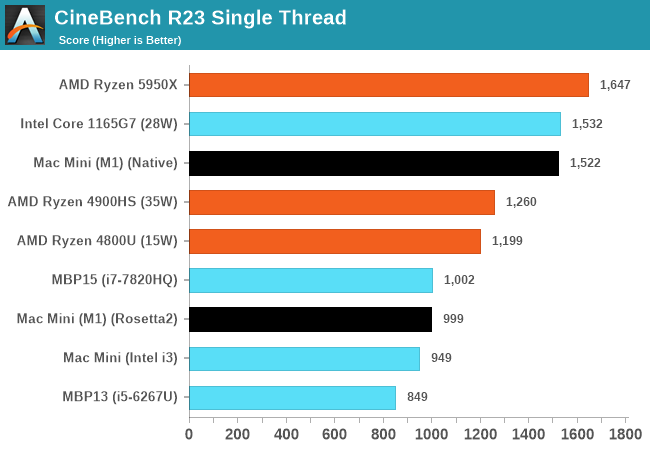
One particular benchmark that sees the first light of day on macOS as well as Apple Silicon is Cinebench. In this first-time view of the popular Cinema4D based benchmark, we see the Apple M1 toe-to-toe with the best-performing x86 CPUs on the market, vastly outperforming past Apple iterations of Intel silicon. The M1 here loses out to Zen3 and Tiger Lake CPUs, which still seem to have an advantage, although we’re not sure of the microarchitectural characteristics of the new benchmark.
What’s notable is the performance of the Rosetta2 run of the benchmark when in x86 mode, which is not only able to keep up with past Mac iterations but still also beat them.
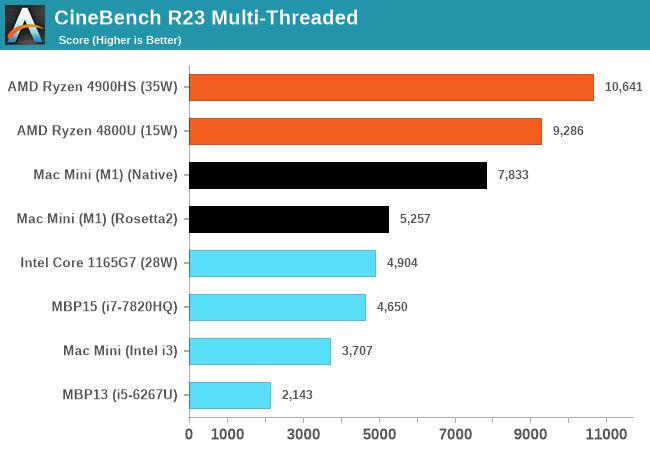
In the multi-threaded R23 runs, the M1 absolutely dominates past Macs with similar low-power CPUs. Just as of note, we’re trying to gather more data on other systems as we have access to them, and expand the graph in further updates of the article past publishing.
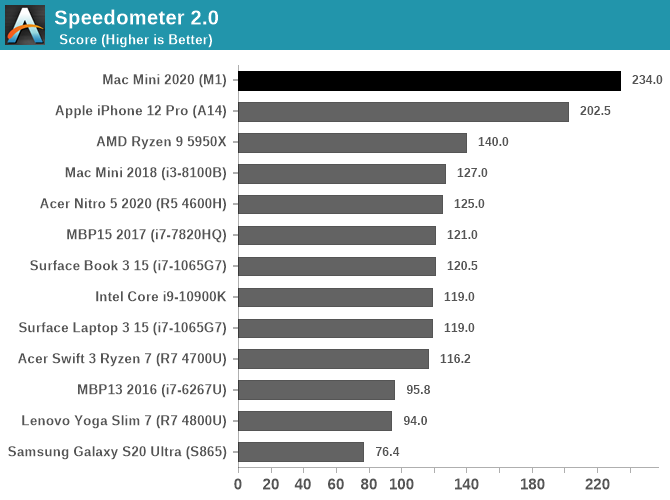
In browser-benchmarks we’ve known Apple’s CPUs to very much dominate across the landscape, but there were doubts as to whether this was due to the CPUs themselves in the iPhone or rather just the browsers and browser engines. Now running on macOS and desktop Safari, being able to compare data to other Intel Mac systems, we can come to the conclusion that the performance advantage is due to Apple’s CPU designs.
Web-browsing performance seems to be an extremely high priority for Apple’s CPU, and this makes sense as it’s the killer workload for mobile SoCs and the workload that one uses the most in everyday life.
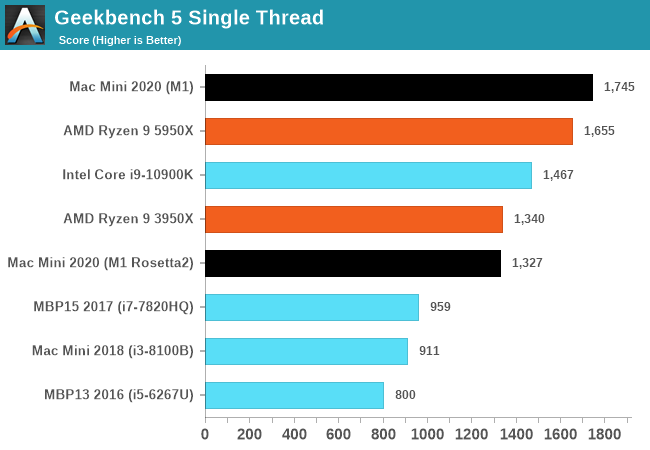
In Geekbench 5, the M1 does again extremely well as it actually takes the lead in our performance figures. Even when running in x86 compatibility mode, the M1 is able to match the top single-threaded performance of last generation’s high-end CPUs, and vastly exceed that of past iterations of the Mac mini and past Macbooks.
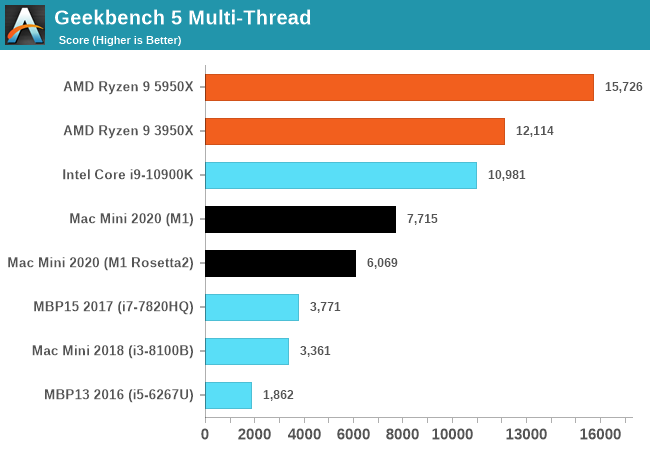
Multi-threaded performance is a matter of core-count and power efficiency of a design. The M1 here demolishes a 2017 15-inch Macbook Pro with an Intel i7-7820HQ with 4 cores and 8 threads, posting over double the score. We’ll be adding more data-points as we collect them.


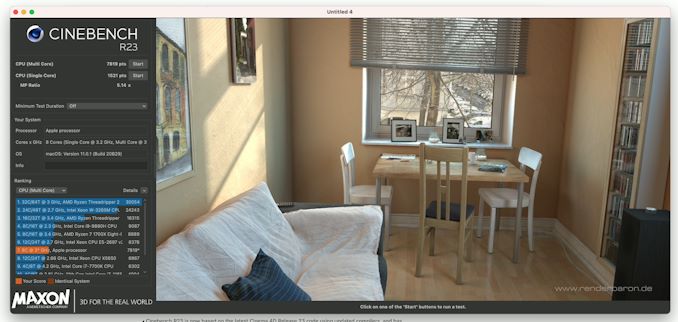








682 Comments
View All Comments
Spunjji - Thursday, November 19, 2020 - link
Agreed with both of you, here. It seems that ARM have likely taken some of Apple's design principles into account with the X1, and with any luck future iterations on that design will close the gap.Kishoreshack - Tuesday, November 17, 2020 - link
People are saying apple have smashed intel & AMDThe only question is how?
ElvenLemming - Tuesday, November 17, 2020 - link
5nm process node and an extremely wide pipeline design that's much harder to implement in x86.tipoo - Tuesday, November 17, 2020 - link
Look at the 630 entry deep ROB, the cache specs, or the front end decode or the back end width. It's a wildly ambitious core and they were not afraid to go very big.StormyParis - Tuesday, November 17, 2020 - link
Thank you, especially for including modern, competitive x86 CPUs and not just the relatively outdated ones in current x86 Macs.I've looked at the new MacBook Air, it's the same price and speed as a core i7 (IIRC) Dell XPS 13, so it comes down to battery life and silence vs RAM and storage expandability, ports, software compatibility, and peripherals compatibility. But not really a game changer ?
ingwe - Tuesday, November 17, 2020 - link
I'd say that on the power consumption side it is a game-changer. I would expect their next gen to be even better. I am actually considering an Air now and I thought I would be getting an XPS 13 for my next machine.YesYesNo - Tuesday, November 17, 2020 - link
If dell start using AMD already the xps 15 will be my next work laptop. I'm not holding my breath though.Spunjji - Thursday, November 19, 2020 - link
Same here on both counts. An XPS 15 with Cezanne and an RDNA 2 GPU would be the bomb; I doubt it's going to happen, though.misan - Tuesday, November 17, 2020 - link
It’s faster and cheaper than XPS 13 and it has better battery.taligentia - Tuesday, November 17, 2020 - link
20 hours battery life with incredible performance is a game changer.